Life
Sign up for our newsletter
We summarize the week's scientific breakthroughs every Thursday.
-
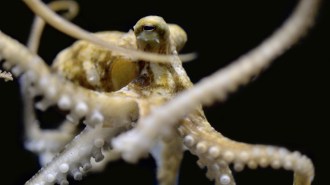 Animals
AnimalsOctopus, squid and cuttlefish arms evolved to ‘taste’ different compounds
Octopus suckers can taste a variety of greasy, sticky molecules, while squid and cuttlefish suckers detect bitter compounds.
-
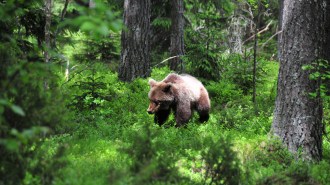 Animals
AnimalsHibernating bears don’t get blood clots. Now scientists know why
People who sit still for hours have an increased risk of blood clots, but hibernating bears and people with long-term immobility don’t. A key clotting protein appears to be the reason why.
-
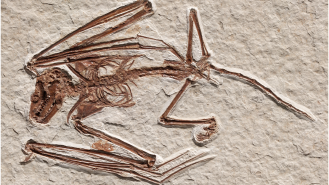 Paleontology
PaleontologyNewfound bat skeletons are the oldest on record
The newly identified species Icaronycteris gunnelli lived about 52.5 million years ago in what is now Wyoming and looked a lot like modern bats.
By Sid Perkins -
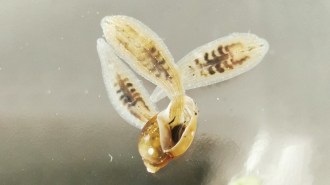 Animals
AnimalsFreshwater leeches’ taste for snails could help control snail-borne diseases
A freshwater leech species will eat snails, raising the possibility that leeches could be used to control snail-borne diseases that infect humans and livestock.
-
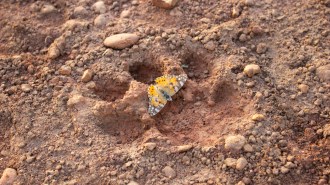 Animals
AnimalsThe last leg of the longest butterfly migration has now been identified
After a long journey across the Sahara, painted lady butterflies from Europe set up camp in central Africa to wait out winter and breed.
-
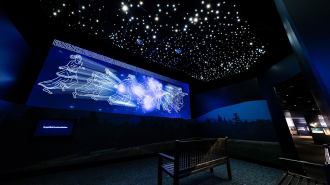 Science & Society
Science & SocietyThe Smithsonian’s ‘Lights Out’ inspires visitors to save the fading night sky
The exhibition examines how light pollution harms astronomy, ecosystems and human cultures. But it also offers hope.
-
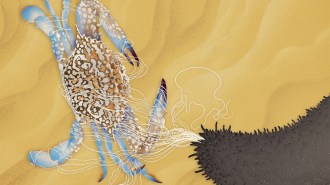 Animals
AnimalsThis sea cucumber shoots sticky tubes out of its butt. Its genes hint at how
A new genetics study is providing a wealth of information about silky, sticky tubes, called the Cuvierian organ, that sea cucumbers use to tangle foes.
-
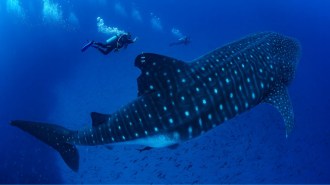 Oceans
Oceans‘Jet packs’ and ultrasounds could reveal secrets of pregnant whale sharks
Only one pregnant whale shark has ever been studied. New underwater techniques using ultrasound and blood tests could change that.
-
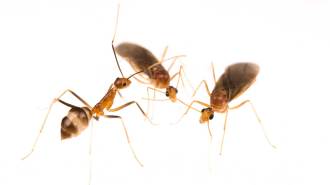 Animals
AnimalsInvasive yellow crazy ants create male ‘chimeras’ to reproduce
Yellow crazy ants are first known species where chimerism is required in males: Each of their cells holds DNA from just one of two genetic lineages.
-
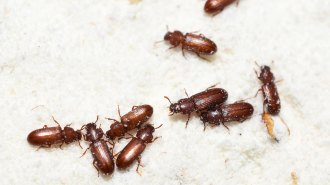 Life
LifeHow some beetles ‘drink’ water using their butts
Red flour beetles, a major agricultural pest, suck water out of the air using special cells in their rear ends, a new study suggests.
By Freda Kreier -
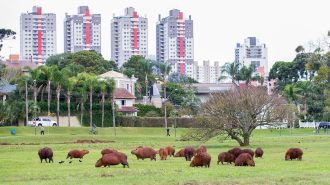 Life
LifeCapybaras thrive, even near humans, because they’re not picky eaters
Scientists didn’t expect capybaras to eat both grasses and forest plants. The rodents’ flexible diet helps them live everywhere from cities to swamps.
-
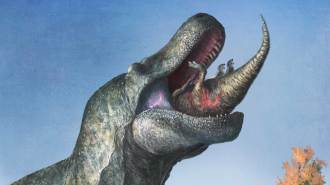 Life
LifeT. rex may have had lips like a modern lizard’s
Dinosaurs like Tyrannosaurus have long been portrayed as lipless, but new research suggests this wasn’t so.
By Jake Buehler